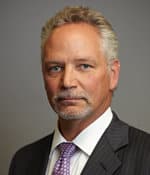
Tighter decision-making times and more demanding end-user clients are pushing investment managers to communicate performance in real time, or as close to it as possible. This is leading firms to abandon in-house performance measurement systems for cloud-based platforms that are capable of taking in and analyzing large quantities of data.
Cloud-based performance measurement systems can provide accurate and reliable performance data and analytics, as well as reporting, enabling companies to focus on improving investment returns.
“Many of these large financial institutions on the institutional side of the business are looking at ways to focus on what they do best,” said David Reid, senior vice president, institutional outsourcing at SS&C Technologies. “Whether that is managing money or managing assets, they don’t want to spend a lot of their time and energy on ‘commoditized’ services, which would include outsourcing of investment accounting and operations.”
SS&C’s performance measurement outsourcing assets under management increased by about 40% to $182 billion over the past 12 months, driven by demand to improve investment decision making and streamline investor reporting. Launched in December 2012, the service combines SS&C’s performance measurement expertise, infrastructure and cloud-based technology to provide outsourced performance measurement including analytics and reporting.
By outsourcing data management tasks associated with the performance workflow and shifting their deployments towards cloud, firms can cut costs and gain operational efficiencies.
Performance measurement technology is emerging from its academic roots to become a central part of firms’ client service, data management, and reporting strategy, according to CEB TowerGroup, which estimates that worldwide spending on performance measurement systems will increase by $84 million by 2017 as firms demand performance systems with advanced analytics workflow management and data presentation.

David Reid, SS&C Technologies
SS&C’s institutional outsourcing business focuses on insurance companies, asset managers, wealth managers, mortgage rates, banks, and pension funds. A separate outsourcing business deals with alternative asset managers, i.e., hedge funds.
Institutions are outsourcing major portions of their operations, such as accounting for hard to value assets, performance attribution, and client reporting. “These are areas where many of these types of financial institutions are looking to gain scale, to reduce risk, to become much more efficient and be able to focus more on what they do,” Reid said. “So we position ourselves as a outsource provider to be able to support those types of functions, either in its entirety or in a ‘componentized’ way.”
In choosing an outsourcing provider, asset managers are paying close attention to the ability of the provider to support accounting and reporting for complex asset classes, such as syndicated bank loans, limited partnerships, complex agency and non-agency asset backed securities, as well as residential and non-residential, performing and non-performing mortgage loans.
“It’s really around those asset classes where they are looking to increase yields, and in order to increase yields they have to go into more complex assets,” Reid said. “In order to be able to account properly for those complex assets, they are looking for a partner to be able to provide services and accounting around those access points.”
In its capacity as both investment book of record and accounting book of record, SS&C receives and processes trades throughout the day, references the trades back to the various counterparties, and values the trades on a continuous basis. “Having access to that information directly every day allows us to be able to provide the performance measurement and the attribution that they are looking for on their entire portfolio,” Reid said.
Feature image by BillionPhotos.com






